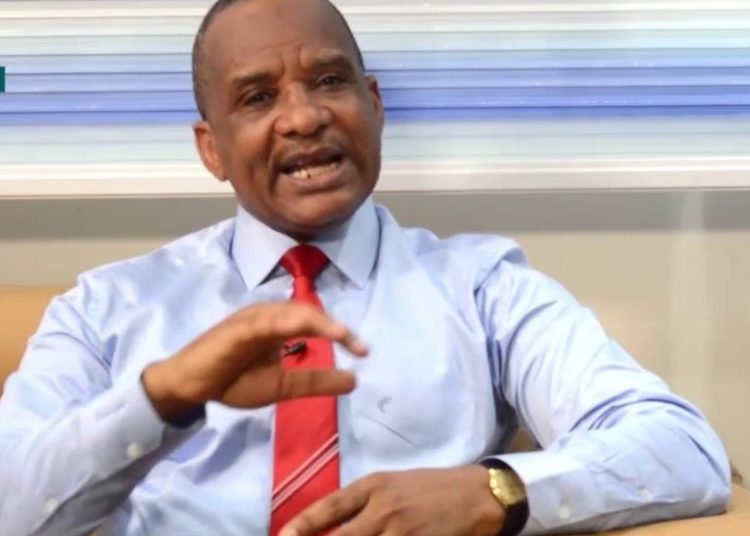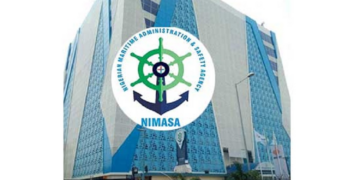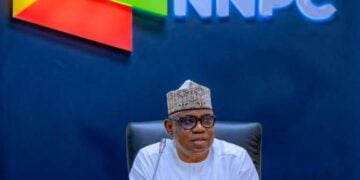The Nigerian Maritime Administration and Safety Agency (NIMASA), has seen a major leap in the oil and gas exports following determined efforts by the Nigerian Content Development Monitoring Board(NCDMB)’s deployment of resources towards completion of the Brass Shipyard project in Bayelsa State.
The agency expressed deep concerns that ship owners in Nigeria would have to take their vessels to Ghana or Equatorial Guinea for repairs despite potentials in the country which lacked the necessary infrastructure to do so.
The director general of NIMASA, Bashir Jamoh, in a goodwill message at the opening of the 4th Edition of the Nigerian Oil & Gas Opportunity Fair (NOGOF), with the theme, “Oil & Gas Industry – Catalyst and Fuel for the Industrialization of Nigeria”, in Yenagoa, Bayelsa State on Thursday, applauded NCDMB for initiating the project, which, he said, will enable vessel owners dry dock their vessels and carry out repairs in Nigeria.
The DG, who was represented by the director, Cabotage Services, in NIMASA, Rita Uruakpa, said, apart from saving the country huge foreign exchange the project will also create more jobs and enhance export potentials of the country.
He assured the board of the agency’s support to ensure sustainable growth in the oil and gas sector as the maritime industry is key to boosting export of crude oil and import of other industry related goods and services.
The construction of the shipyard in Brass Island, Bayelsa State, is expected to cater for the maintenance and repair services of cargo vessels, oil tankers, and LNG carriers.
The project to be executed by China Harbour Engineering Company, which had carried out similar projects across the globe as well as in Nigeria, which feasibility study is being funded by the Nigerian Content Development and Monitoring Board (NCDMB) as part of its overarching mandate to domicile key oil and gas industry infrastructure and increase retention of industry spend.
The scope of the feasibility study includes geotechnical and bathymetric surveys, conducting a market study, ascertaining an optimal construction scale, developing technical proposal and construction plan and estimation of the required investment to bring the project into reality.
Jamoh noted that high traffic of vessels in and out of Nigeria provides a huge opportunity to retain substantial value in-country through the provision of dry-dock services.
He said the shipyard project would further develop and harness the nation’s position in the oil and gas value chain and linkage to other sectors of the economy.
Earlier, the ES of NCDMB, Simbi Wabote, said, the Nigeria LNG’s Train 7 project is expected to increase the company’s Liquefied Natural Gas capacity from 22MTPA to 30MTPA and induce the acquisition of additional LNG carriers to the existing ones, all of which would need maintenance and servicing.
He added that the project would also benefit from the upcoming implementation of the Africa Continental Free Trade Agreement (AfCFTA) as Nigeria could serve as hub for ship-building and repairs.
He expressed confidence that the outcomes of the feasibility study and subsequent construction and operation of the shipyard will create employment opportunities and contribute to poverty reduction in line with the aspirations of the government.
Wabote assured the Brass shipyard project and other ongoing efforts to catalyze manufacturing would help the Board achieve the target of 70 per cent Nigerian Content by 2027.
He confirmed that the project was being driven by the NCDMB in conjunction with NLNG as a Capacity Development Initiative (CDI) on the back of the Train 7 Project.











